[ad_1]
Are you a digital agency owner looking for a white-label WordPress development service?
Running an agency and managing your clients is tough work. That’s why many agency owners choose to work with white-label partners for their WordPress website projects.
Since we have plenty of WordPress experience, we’ve put together this guide to help you white-label your WordPress development.
In this article, we’ll share some easy tips on how to white-label your WordPress development services.
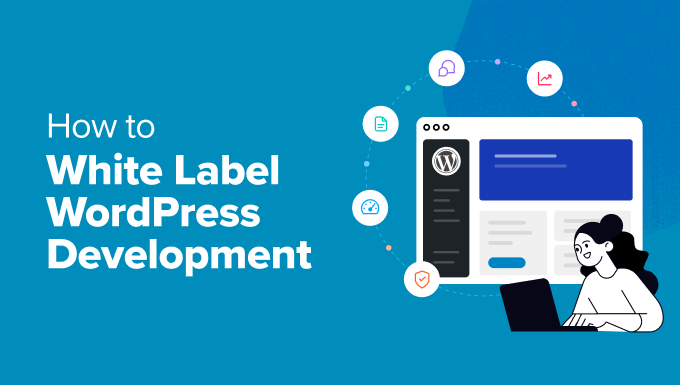
What Is White-Label WordPress Development?
White-label WordPress development allows digital marketing agencies to offer WordPress websites to their clients under their own brand name. This means the client won’t know the website was built by someone else.
White-label WordPress development works by hiring a third-party WordPress freelance developer or agency like Seahawk Media.
Once you have received your client’s project description, you can pass that information to the white-label partner. They’ll build the WordPress website and handle the technical work while you manage the client relationship and present the finished product as your own.
What Are the Benefits of White-Label WordPress Development?
White-label WordPress development offers several advantages for digital agencies and freelancers:
Create a smooth client experience – Ensure brand consistency and build client trust by using your own brand design and logo throughout the website development process.
Save up on WordPress development costs – Building an in-house development team can be expensive. White-label services are often more cost-effective, allowing you to keep your overhead low and potentially increase your profit margins on WordPress projects.
Expand your services – By offering white-label WordPress development, you can add website creation to your service list without hiring your own developers. This helps you attract new clients looking for complete digital marketing solutions.
Focus on scalability – When you partner with a white-label WordPress agency, you can easily take on more projects and increase sales without worrying about the actual development work and staffing limitations.
Let WordPress experts do the job – Benefit from the experience of a team specializing in WordPress development. They can handle complex tasks and ensure your clients’ websites are built to the highest standards.
Now that we have covered the basics, let’s go over some expert tips on white-labeling WordPress web development services for agency owners. Feel free to use the quick links below to skip to your desired section:
1. Decide What Web Development Work to Outsource
Before you set out to find a WordPress development agency, you should figure out what kind of projects your target audience or existing clients most likely need.
That way, you can decide which specific expertise to look for when choosing an agency to work with. You will want to work with partners who have the right skills and experience for your client’s needs.
Perhaps the agency specializes in website development. This includes everything from website design and user experience (UX) to front-end and back-end development. This option is ideal for clients who need to create a new website from scratch.
Does your client have a WordPress site already and is looking to add custom functionality to it? Maybe you can outsource a custom WordPress theme or plugin development to a third party.
If your client wants to build an online store, you can outsource the setup of WooCommerce, a popular eCommerce plugin for WordPress.
The white-label development team can help with creating your client’s website, setting up the payment gateways, adding the products, and so on.
You may also want to think long-term and offer ongoing support after the website’s launch. This may include WordPress support and maintenance services like regular updates, security patches, and troubleshooting assistance.
2. Research Potential WordPress Development Partners
Now that you have an idea of what development work to outsource, you can start looking for the right WordPress agency to work with you.
There are so many options on the market. But if you want trusted recommendations, then you can check out our list of the best WordPress development agencies.
We’ve thoroughly reviewed and even worked with some of the companies listed there. So don’t hesitate to go over to their website and say hi!
When finding the right WordPress development partner, you should look for these elements:
List of WordPress services and if they suit your business needs.
Years of experience in WordPress development.
Portfolio and/or client case studies to see if they have worked on projects with your specific needs.
Any explanation about their WordPress development process for white-labeling. If there’s nothing, you can always contact them.
Any experience with specific types of WordPress plugins or themes. For example, some clients may want to use a page builder like SeedProd to make it easier to update their content.
Any mention of security and data protection practices to ensure your client’s website is safe and protected.
Pricing for white-labeling services.
Client testimonials on review platforms or social media. It’s also good to check how they respond to negative reviews.
If you’re looking for a top-notch WordPress development agency, then look no further than Seahawk Media. This white-label WordPress company has worked with 1000+ businesses, including big-name brands like DreamHost, GoDaddy, and Alibaba Cloud.
That being said, there services are available for businesses of all sizes. You can hire them for white-label web design, SEO content, WordPress migration, and more.
You can learn more about the company in our full Seahawk review.
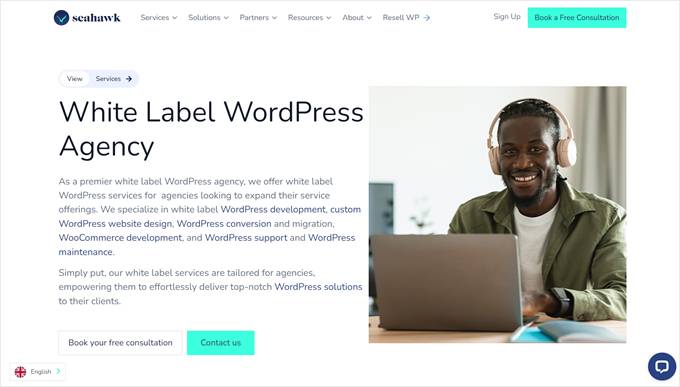
If you’re looking to work with a freelancer instead of a white-label agency, Codeable is a great place to start.
Lots of WordPress agencies use Codeable to find skilled web developers who can deliver high-quality work and meet their client’s needs, all while keeping their own branding.
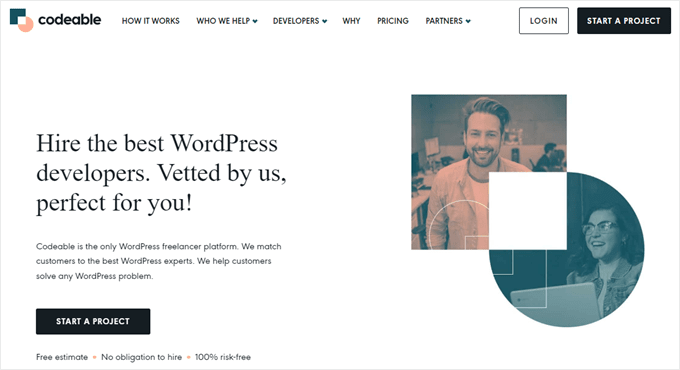
3. Secure Your Partnership with a Solid Contract
If you have contacted a WordPress development company and they are interested in working with you, you can now prepare a contract for them.
A well-defined contract protects both you and your white-label development partner. It clarifies key details like project scope, timelines, deliverables, payment structures, and communication protocols.
Having everything documented upfront minimizes misunderstandings and ensures everyone is on the same page.
If you want, you can even create a contract agreement form on your agency website and have the third party sign it there.
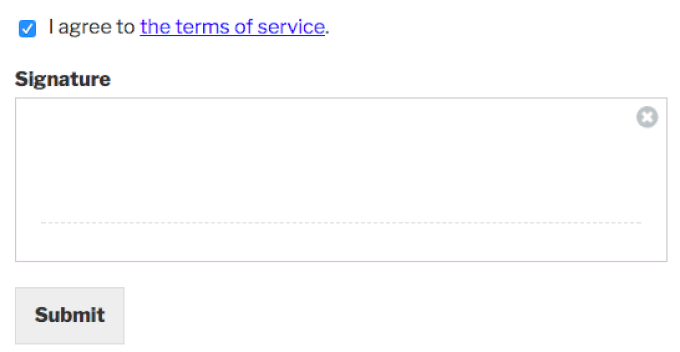
Here are some elements you should include in the contract:
Project scope – Clearly define the specific website development tasks to be outsourced. Include details like features and any design elements covered by the agreement.
Deliverables and timelines – Outline the expected deliverables (such as website mockups or completed custom plugins) and establish clear deadlines for each project stage.
Payment schedule – Specify the payment terms, including the total project cost, payment milestones, and payment methods.
Revisions and approvals – Define the revision process for design concepts and website development phases. Determine how many revisions are included and who has final approval authority.
Confidentiality and intellectual property – Include clauses protecting your client’s confidential information and intellectual property rights.
White-labeling procedures – Specify how the white-labeling will be implemented. This might include details on removing the development agency’s branding and replacing it with your own.
Warranties and guarantees – Outline any warranties the development company offers regarding the quality of their work and website functionality.
Termination clause – Include a clause outlining the conditions under which either party can terminate the contract.
Dispute resolution – Define a process for resolving any potential disagreements that may arise during the project.
Before finalizing the contract, ensure both you and the development partner have thoroughly reviewed the document. Ask any clarifying questions and ensure all terms are fully understood.
Once satisfied, sign the contract to officially establish your white-label WordPress development partnership.
Note: This does not constitute legal advice, and we are not legal professionals. We recommend discussing any contracts with your attorney or legal team before proceeding into any contractual agreement.
4. Promote Your WordPress Development Services
Now that you have a white-label partner, you can start offering your WordPress development services to potential and existing clients.
One way to do this is by adding WordPress development to the services section of your website.
There, make sure to clearly outline the benefits of the service. For example, if you work with Seahawk Media, then you can mention how you can get a mobile-optimized website affordably and quickly (thanks to Seahawk’s QuickSite service).

Also, mention the specific services you offer, such as full website creation, custom theme development, and/or WordPress maintenance.
You can also create a landing page that dives deeper into your WordPress development services. You can optimize it for relevant keywords related to WordPress development and even use it as a landing page for search ads.
On the page, you can add a handy request-a-quote form to generate leads and make it easier for users to reach out to you.
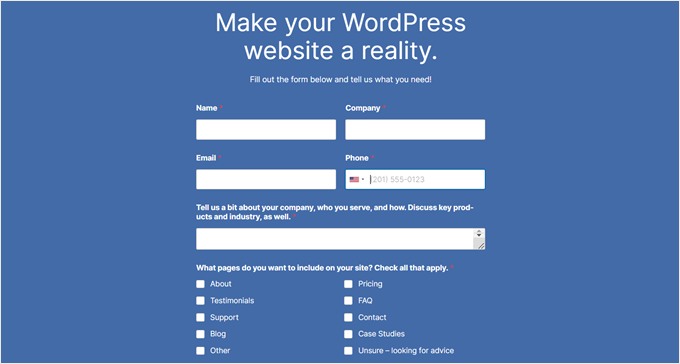
If you have a social media presence, then you can announce your new WordPress development services on relevant platforms. LinkedIn is great for attracting businesses that need to make a custom website.
For step-by-step guidance, we’ve created an ultimate guide on how to do lead generation like a pro. This tutorial can give you the tips and tools to convert visitors into leads and, eventually, your next clients.
5. Gather a Detailed Project Description from Clients
Have you secured a client for your WordPress development service? Great! Your next step is to get as much information as possible about their project so that your white-label partner can start working on it.
A thorough project description ensures the development team has a clear understanding of the client’s vision. This includes details like the project’s goals, timeline, target audience, desired functionality, client’s brand identity, website inspiration, and so on.
For this step, we recommend setting up a call with your client rather than just asking for a written document. This allows for a more in-depth discussion about their project needs and fosters a stronger relationship from the get-go.
You can install a WordPress appointment booking form plugin like WPForms to let clients easily book a meeting with you. This feature makes the scheduling process much easier and eliminates any back-and-forth emails.
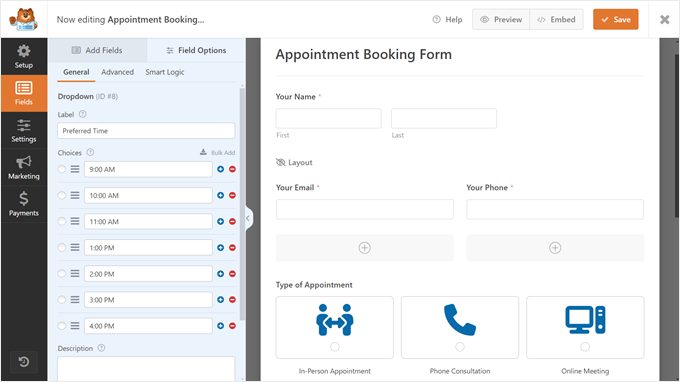
Additionally, if you don’t have video chat software yet, then we recommend using RingCentral.
With features like screen sharing, video call scheduling, and meeting recording, RingCentral is one of the best video chat tools for small businesses.
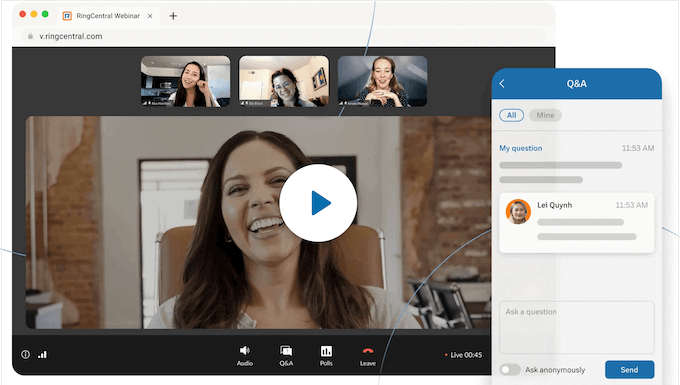
Alternatively, you can use a free option like Google Meet or Zoom to communicate with your client.
6. Keep Your Client and Partner in the Loop
Once your white-label partner is on board the project, you should regularly communicate with the development team and your client. The goal is to make sure everyone knows what’s going on with the project.
When working with your partner, we recommend using a project management tool like Asana to keep track of tasks, deadlines, and files. This way, everyone can see what needs to be done and who’s working on what.
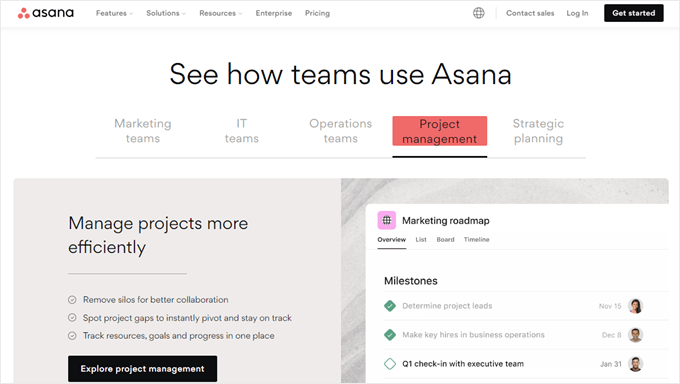
You can also create a Trello-like Kanban board on the WordPress dashboard of your client’s website to keep everything in the same place.
Additionally, schedule regular meetings with your white-label partner to chat about the project. This is a chance to discuss any problems and make sure everything is going smoothly.
When the project is almost done, you should check the website for quality standards and common WordPress errors. The website should look good and work great when presented to your client.
As for your clients, you can do weekly or bi-weekly check-ins via email to give them updates on how things are going. Feel free to schedule calls with them to answer their questions and make sure they’re happy with the progress.
7. Collect Client Feedback and Keep Improving
Gathering client feedback about your white-label WordPress development experience can be incredibly helpful. They can help you find ways to improve your service, like making communication smoother or getting websites done even faster.
If your clients love your work, you can ask them for positive reviews to put on your website. This can convince other people to do business with you, too. Social proof is very powerful for converting users into clients.
Here’s an example of a good customer review section on Seahawk Media’s website:
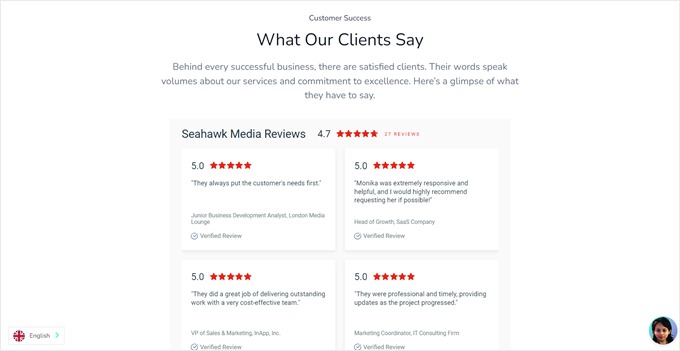
One way to find out your clients’ thoughts is with the WPForms plugin. This plugin makes it easy to add a short and simple feedback form to your agency website.
We also suggest scheduling a follow-up call with your client to discuss the project and get their honest feedback. This allows for a more in-depth conversation about their experience.
8. Cross-Sell Other Services to Increase Revenue
Perhaps your client’s project is done and their WordPress site is published. To create a long-term relationship with them, you can offer them your other existing services to help them succeed.
The more you help your clients, the happier they’ll be, and the longer they’ll stick with you.
For example, maybe they’re happy with the web design, but their content isn’t ranking on Google’s search engine results pages. This is a great chance to offer them your search engine optimization (SEO) and content marketing services.
You can also check in with the client after some time to see what problems might have occurred after the website launch. If the website is too slow, then you can offer a special speed optimization package to make it load faster.
Or, perform a user experience audit if their visitors have been bouncing off of their site much more than usual.
Additionally, you can help your client reach more people through other digital marketing channels like social media or newsletters.
Alternative Ways to White-Label WordPress Development
Perhaps you’re a small WordPress agency or freelancer who can build the website yourself but want more control over your branding. If so, then you may not need a full-blown development agency for white-labeling.
Instead, you can use WordPress plugins that offer white-labeling features. This means you can replace the plugin developer’s branding with your own and create a consistent brand experience for your clients.
One example is to use the White Label CMS plugin to white-label your client’s WordPress admin dashboard.

Another way is to use a reseller WordPress hosting plan like SiteGround’s. This type of service lets you purchase a hosting plan and resell it to your clients under your own brand.
This gives you more control over the hosting environment and lets you offer website development and hosting as a bundled service.
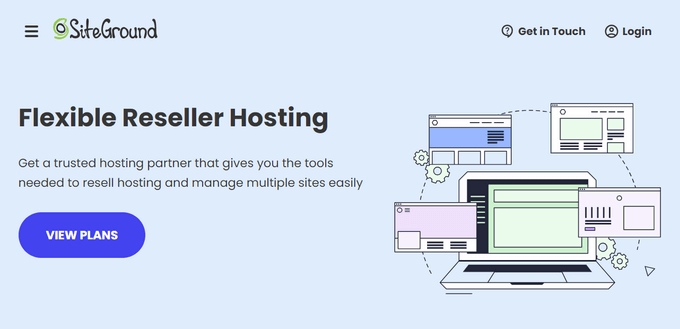
What Is the Best White-Label WordPress Development Service for Digital Agencies?
Based on our experience, Seahawk Media is the best white-label WordPress development service for digital agencies.
With a large team of WordPress experts, Seahawk Media can handle various WordPress-related tasks. Their range of services includes website design, ongoing maintenance, hacked site repair, eCommerce, and so much more.
If you’re interested, you can schedule a free consultation with the Seahawk team.
Another recommended option is Codeable. They run a WordPress freelancer platform, making them ideal for agencies wanting to support their client’s projects under their own brand.
We hope this article helped you learn how to white-label WordPress development for digital agencies. You may also be interested in our expert pick of the best WordPress hosting providers and our guide on how to manage multiple WordPress sites from one dashboard.
If you liked this article, then please subscribe to our YouTube Channel for WordPress video tutorials. You can also find us on Twitter and Facebook.
[ad_2]
Source link

